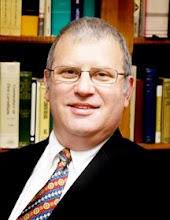Can a perfectly just and holy God forgive? Yet we know Him as a merciful and gracious God. How can He maintain His holiness and yet extend us such grace? If He is holy and just He cannot forgive, but if He is merciful does He lose His moral absolute?
26he did it to demonstrate his justice at the present time, so as to be just and the one who justifies those who have faith in Jesus.
Romans 3:26 (NASB)
He is God and He is both the just and the justifier of those who believe in Him. He can do it because He has chosen to do so. Rather than question, I would have us be thankful. For quite frankly, the alternative is none too encouraging to entertain.
God is both within and outside of time and space. He was before time and space (that is, he was before the creation that He Himself created). He created all, but His participation and sustaining of creation means that in the end, it has no end, because He has deemed eternity for us.He has entered into history of His own choosing and as such, can give us the everlastingness we need for eternal existence. There can be none without Him.
Can you think of other points you and I need to ponder about the glorious God we serve?
He is the biggest of ideas and well beyond even that. In the scope of all history, He is the metanarrative that makes a short story out of all else.





















